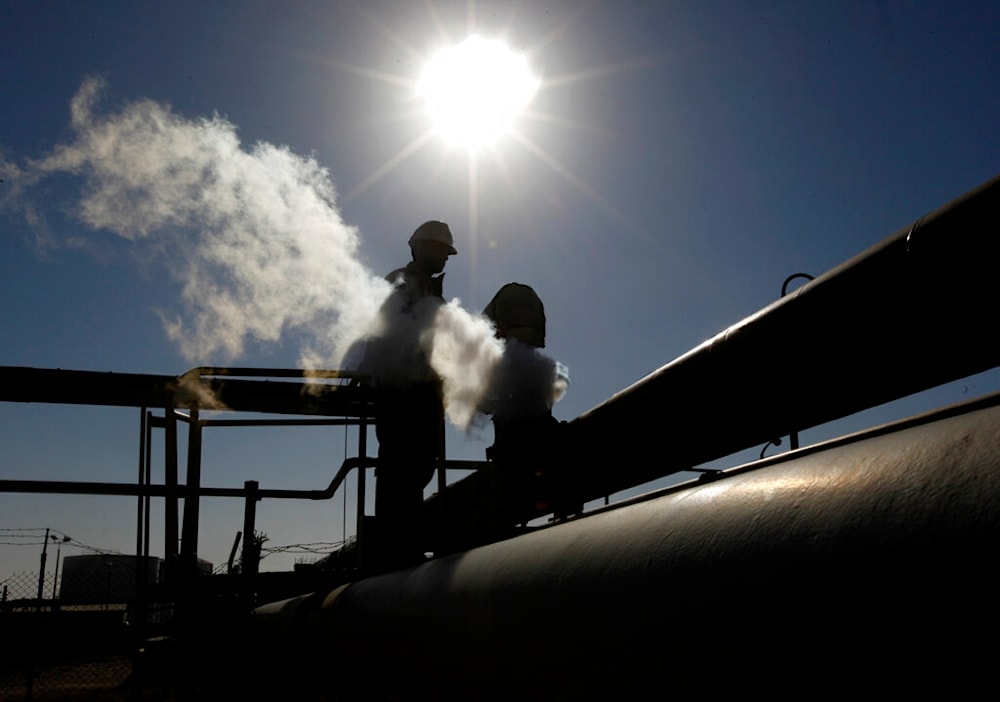Libya to resume oil prod. after appointment of new Central Bank Gov.
Oil production is set to resume in the coming days, according to Talal Al-Mihoub, head of the defense and national security committee.
-

In this Feb. 26, 2011 file photo, a Libyan oil worker, works at a refinery inside the Brega oil complex, in Brega, eastern Libya. (AP)
Libya is set to resume oil production after the House of Representatives voted to approve Naji Issa as the new central bank governor, following an agreement with the Tripoli-based High Council of State.
Talal Al-Mihoub, head of the defense and national security committee, confirmed that oil fields and ports, which had been closed during the central bank crisis, will reopen immediately.
"After the Libyan House of Representatives voted in favor of the agreement to appoint Naji Issa as the governor of the Libyan Central Bank and Marai Al-Barasi as his deputy, the process of reopening oil fields and ports closed during the central bank crisis will begin immediately," Al-Mihoub said.
The official added that oil production is set to resume in the coming days.
Read more: Algeria says rejects any external interference in Libyan affairs
The central bank had previously suspended operations in late August due to the kidnapping of a key official, Musab Msallem, the director of information technology at the Central Bank of Libya. However, operations resumed shortly after his release.
Bank Turmoil
In August 2024, Libya's Central Bank Governor Sadiq al-Kabir, along with other high-ranking bank officials, fled the country due to threats from militias amid the political divide in Libya.
This occurred after armed groups attempted to take control of the central bank building. Al-Kabir's safety concerns escalated, forcing him to seek refuge outside Libya.
The Presidential Council in Tripoli subsequently dismissed al-Kabir from his position. They appointed Mohamed Abdul Salam al-Shukri, a former deputy governor, as his replacement.
However, this decision was strongly opposed by both the eastern-based House of Representatives and the Tripoli-based High Council of State, who deemed the dismissal illegitimate and argued that any such decision should involve broader political consensus.
This crisis in leadership at the Central Bank has had wider implications, including the temporary closure of oil fields and ports during the turmoil.
The move to appoint Naji Issa as the new central bank governor in September 2024 was part of an effort to restore stability and resume oil production.
Read more: Libya factions agree on Central Bank governor to ease crisis

 2 Min Read
2 Min Read








